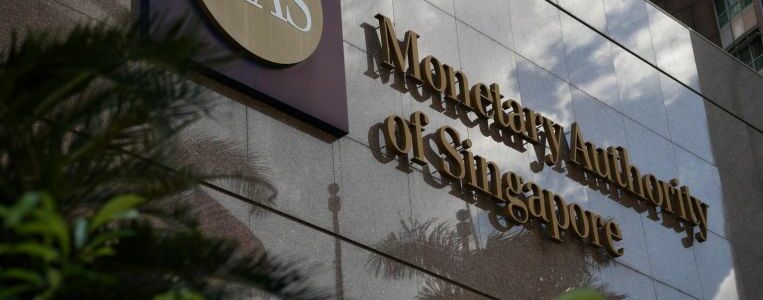
MAS to deploy $2.38 billion for climate- related investment opportunities
SINGAPORE – Some US$1.8 billion (S$2.38 billion) in funds will be placed with five asset managers to set up their Asia Pacific sustainability hubs here and guide firms towards greener outcomes, Monetary Authority of Singapore (MAS) managing director Ravi Menon announced on Wednesday (June 9).
MAS will also be consulting the industry later this year on mandatory climate-related disclosures by financial institutions, with a focus on transitioning such expectations into legally binding requirements against global standards.
The moves are part of MAS’ plans to help Singapore make an orderly transition to a low-carbon economy, as outlined in its first sustainability report, also released on Wednesday.
Mr Menon said: “Finance is key to unlocking a sustainable future. It can support the transition to a less carbon intensive economy by channelling capital to green technologies and infrastructure.
“This is why MAS is incorporating climate change and environmental sustainability across all its functions. As central bank and financial regulator, MAS is working with financial institutions to strengthen the Singapore financial sector’s resilience against environmental risks.”
As part of the green investment programme, the five asset managers will drive regional sustainable efforts, launch new thematic funds around environmental, social and governance (ESG) concerns and build capabilities in green finance through training programmes, Mr Menon said.
They will also generate deeper green finance research customised for the region and explore green fintech solutions to facilitate trusted green flows out of Singapore, he added.
“Each of them is ramping up their plans to build up their Asia Pacific hubs in Singapore… We expect they will be able to do so over the next few months.”
The asset managers were not named, in line with MAS practice.
As part of MAS’ green action plan, it also seeks to enhance climate-related financial disclosures by firms, the report noted.
MAS already expects all banks, insurers and asset managers to make climate-related financial disclosures by June 2022, but it will consult the industry later this year on how to transition these expectations into legally binding requirements against a single internationally aligned standard.
The Singapore Exchange will also consult on proposed enhancements to sustainability reporting guidelines for listed firms, in line with global recommendations by the Task Force on Climate-Related Financial Disclosures.
Mr Menon said: “We need to urgently enhance the quality and consistency of climate-related disclosures.
“Reliable and comparable climate-related disclosures are critical for better pricing of climate-related risks, more effective risk management and market discipline, and effective allocation of capital towards financing green and transition activities.”
Besides focusing on the industry, the report also looked at MAS’ strategies to ensure its own reserves portfolio remains climate-resilient.
“We aim to reduce risks to the portfolio across different climate scenarios, seize investment opportunities from the transition to a lower carbon future and support the transition of portfolio companies,” Mr Menon said.
An analysis of the portfolio over a 20-year horizon found that climate change will dampen expected returns especially for equities and will present risks that MAS needs to manage, he said.
Given this, MAS is developing a climate risk overlay programme for its equity portfolio, which will include reducing exposure to carbon intensive sectors, Mr Menon said.
It is also working out a roadmap to set its own targets and strategies for emissions reduction in its operations.
Mr Menon said: “Our biggest challenge is to reduce the environmental footprint of our currency issuance,” adding that it accounts for an estimated 40 to 60 per cent of MAS’ carbon footprint.
“Ultimately progress on emissions reduction in currency operations hinges on a reduction in public demand for notes and coins. MAS will continue to promote electronic payments, the use of good-as-new $2 notes for Lunar New Year, and e-gifting during festive seasons.”
The report noted that MAS issues about 100 million pieces of new notes for Lunar New Year and other festive periods annually.
MAS will also work to grow an ecosystem of green finance and fintech capabilities to support and sustain Singapore’s development as a green finance hub.
Almost $11 billion of green, social and sustainability bonds have been issued here since 2017, the report said.
Over $22.5 billion of green and sustainability-linked loans have also been issued here from 2017 to last year.
MAS is supporting six green fintech projects through its financial sector technology and innovation grant scheme, for which it has earmarked $50 million.
The MAS chief said: “The climate crisis demands urgent, collective action to drastically reduce greenhouse gas emissions. The world is probably on the cusp of the greatest economic and societal transformation since the Industrial Revolution.
“The coming green revolution, along the digital one, will involve all segments of the economy and society. Governments, businesses, and individuals will all need to do their part.”
Join ST’s Telegram channel here and get the latest breaking news delivered to you.
Source: Read Full Article